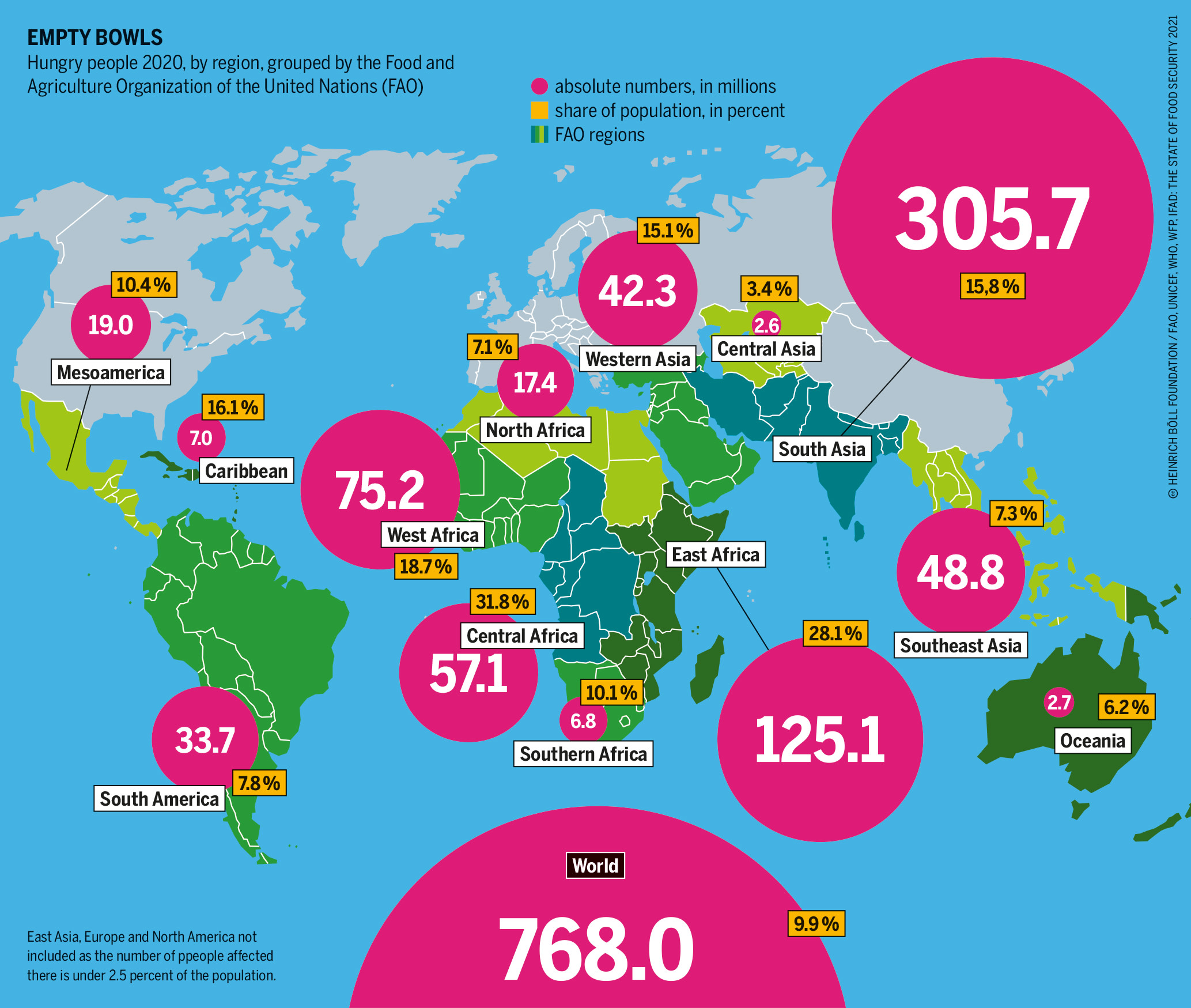In 2020, 768 million people suffered from hunger and undernourishment. The Food and Agriculture Organization of the United Nations expects these numbers to rise further as a result of the economic crisis triggered by Covid-19, extreme weather events, and conflicts.
At the same time, many millions of other people are unable to enjoy a healthy diet. In the developed world, demand is rising for food from food banks. Unbalanced diets, nutritional deficiencies and obesity have emerged as major burdens on health services.
Hunger and malnutrition are not accidental by-products of our food systems. They are the consequence of a lack of regulation and stark imbalances of power. They are a moral disaster and a call to political and social action.
With this publication we want to make a contribution to a lively societal debate. We want to present the causes of hunger and malnutrition and show that clear political rules and strategies are needed to counter these developments. We want to show that hunger and malnutrition are the consequences of injustice, instability and poverty – and that policies must therefore also address these underlying causes.
Hunger affects about one in ten people in the world
The inspiration for this publication is the United Nations Food Systems Summit 2021. For the first time in the history of the United Nations, a summit will be devoted exclusively to our food systems. The Summit could become a catalyst for real change, as participants will discuss food system transformation.
But the signs are that the summit will not adequately address the social and political causes of hunger and malnutrition. It might turn out to be a missed opportunity.
It is possible to create sustainable, just and healthy food systems. For this to happen, it is key to strengthen political structures that truly focus on the right to food, on healthy nutrition, and on protecting biodiversity and the climate.
Image Gallery














